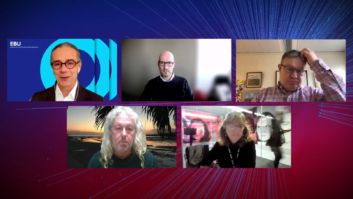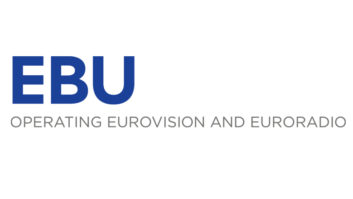
As Radio World reported in late July, the European Broadcasting Union has been chosen by ICANN to administer the “.radio” domain name globally. Its program will be administered by a World .Radio Advisory Board managed by the EBU.
What are the implications? As part of our coverage of this ongoing story, Radio World asked Alain Artero, .radio TLD project manager for the European Broadcasting Union, who works in collaboration with Graham Dixon, the EBU head of radio. He replied via email.
Radio World: Does the ICANN decision apply globally, or only in certain countries?
Artero: ICANN stands for Internet Corporation for Assigned Names and Numbers; it is the worldwide organization that ensures the operational stability of the Internet. One of its main roles is to define general policies for the administration of generic Top Level Domains (such as .com, .org, .net , .shop, .paris etc.), and also to assign the responsibility for each TLD.
Consequently, this decision to award EBU the right to manage .radio TLD applies globally.
RW: It seems ICANN ultimately accepted EBU’s argument about the nature of radio as a community in making this decision. Why is this notable?
Artero: The EBU application to manage the .radio TLD has now been validated by ICANN. .radio will become one of the very few community TLDs.
To understand why this is important, it is vital to explain the various kinds of TLDs:
- Standard generic TLDs (e.g. .com, .club , .cloud): No particular TLD-specific policy
- Country code TLDs (e.g. .ch, .de , it, .tv): Subject to the respective country’s laws
- Brand TLDs (e.g. .ibm, .eurovision): For exclusive use by the respective registry operator
- Geographic and cultural/language TLDs (e.g. .paris, .swiss): For the respective local community, culture or language
- Community-based TLDs (e.g. .bank, .radio , .pharmacy): For the respective community
Community TLDs are intended for community groups operating their own TLD for an economic sector, a cultural community or a linguistic community. Rules and controls are defined to ensure that the TLD represents a specific community, being reserved for its use.
Only the community TLD can fully prevent cybersquatting by limiting who can obtain a .radio domain (policy, pre- and post-controls), and avoid schemes similar to ‘.tv’ in which many speculators buy domains simply for commercial purposes, namely for reselling them to brand owners for defensive reasons.
Few Community TLDs propositions have passed the very difficult ICANN Community Priority Evaluation Process (CPE). Many projects have been rejected due to the stringent CPE procedure. Being recognized as Community TLD is significant, since it means that genuine projects are recognized and given priority, whereas other non-community projects are eliminated. In the alternative scenario, auctions are organized and can be assigned on a purely commercial basis.
Passing the CPE gate marked the start of challenges by the three other applicants for .radio. Their goal was to use .radio for purely commercial reasons as compared with our willingness to make .radio a high-quality internet space reserved to the world radio community. Other Community TLD Projects are still experiencing similar issues due to the resistance those involved in the domain industry to accept the community TLDs concept.
RW: EBU said it plans to set up a World .Radio Advisory Board. Why, and who will participate?
Artero: The World .Radio Advisory Board will be established in the coming weeks, and will comprise individuals from supporting organizations, including public service radio, commercial radio and amateur radio, representing the worldwide radio community. The board will define policies and will stay across the development of the .radio TLD.
Here are the organizations that endorsed the project in spring 2012:
Asia-Pacific Broadcasting Union (ABU)
Arab States Broadcasting Union (ASBU)
African Union of Broadcasting (AUB)
Caribbean Broadcasting Union
International Association of Broadcasting (IAB)
Asociación Internacional de Radiodifusión
North American Broadcasters Association (NABA)
Organización de Telecomunicaciones de Iberoamérica (OTI)
Association Européenne des Radio (AER)
The Association for International Broadcasting (AIB)
World Association of Community Radio Broadcasters (AMARC)
Association of Television and Radio Sales Houses (EGTA)
The Metropolitan Opera
Union Radiophonique et Télévisuelle Internationale (URTI)
International Amateur Radio Union (IARU)
RW: Do you anticipate that the National Association of Broadcasters in the United States will take part?
Artero: NAB is full member of the North American Broadcasters Association and therefore will be represented through NABA in the WRAB.
RW: If a radio station or other organization wishes to obtain a “.radio” URL, when and how can they apply?
Artero: To apply for a .radio domain, organizations should wait for the launch of the .radio TLD. The launch takes place over the period of several months, during which the radio stations (and other bodies related to radio) will announce their desire to acquire a given domain name.
There will be rules, for instance, you can request a domain similar to the usual name of your radio station and not anyname.radio. Concerning priorization, on-air radio [entities] are given priority in comparison to web radio or radio professionals. This has already been described publicly in our .radio application.
During this period, we will work hard to optimize the allocation of domains to avoid as much as possible the issues that may arise when several radios are seeking to acquire the same example.radio domain name.
After this period, the full availability of .radio TLD will begin, in which .radio is available to anyone related to the radio world without the priorization that characterized the initial period.
RW: Will there be a cost to apply?
Artero: Prices will be defined by the registry operator (EBU), but the registrars who sell the domains define the final price. This explains why there are different prices on the market for the same domain extensions, depending on the registrars; this is the normal situation.
RW: You described a launch period. What should stations know about that?
Artero: It is important to understand that the launch period constitutes the opportunity to obtain a .radio domain. During this period we seek to solve any contention regarding name issues, and will work hard to help all applicants and provide them with the best option.
In practice, they should contact one of the registrars offering .radio registrations. The registrars transmit the registration requests electronically to EBU’s .radio registry system. At that point, requests are validated by EBU’s .radio team.
When the .radio TLD arrives at the general availability phase, it may be too late for obtaining any precise domain.
RW: Ingrid Deltenre, director general of the EBU, calls the domain “extraordinary.” Why?
Artero: Extraordinary is a strong word, but it reflects well how different .radio will be compared as generic TLDs. We anticipate first a high demand of .radio domains for defensive reasons, but everyone will also notice that .radio is an internet space dedicated to the radio world. This delivers high potential for those who want to achieve visibility with a highly recognized, safe and trusted internet address.
RW: How many radio stations and online radio entities does EBU think exist in the world, that might be interested?
Artero: We believe that if every organization represented in the WRAB informed their radio members about the opportunity to step into the .radio internet space, then it should be quickly very significant.










